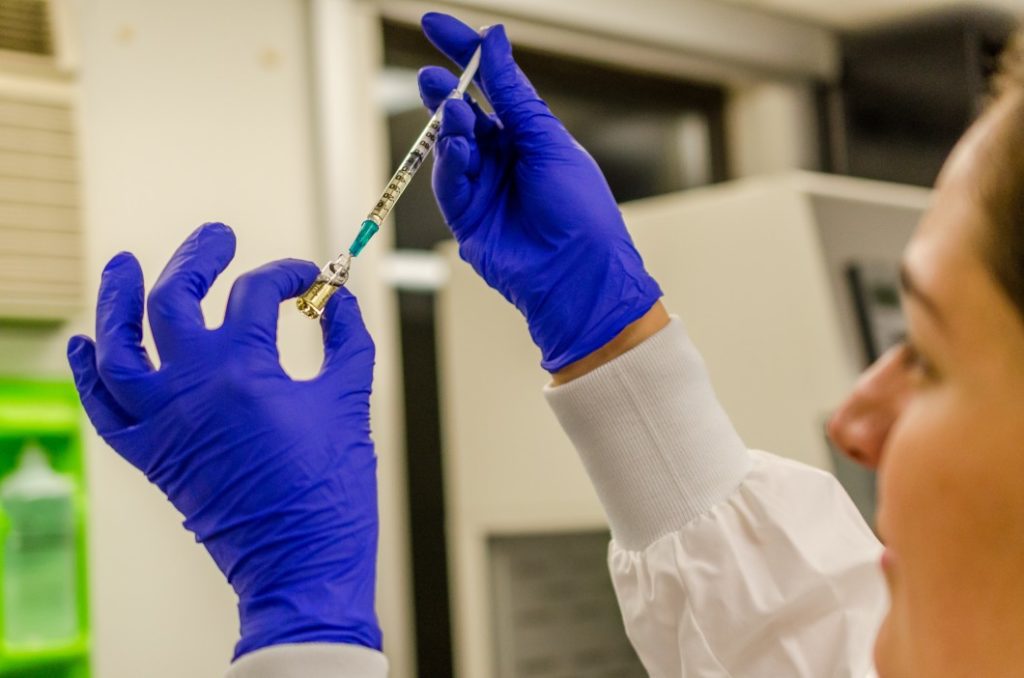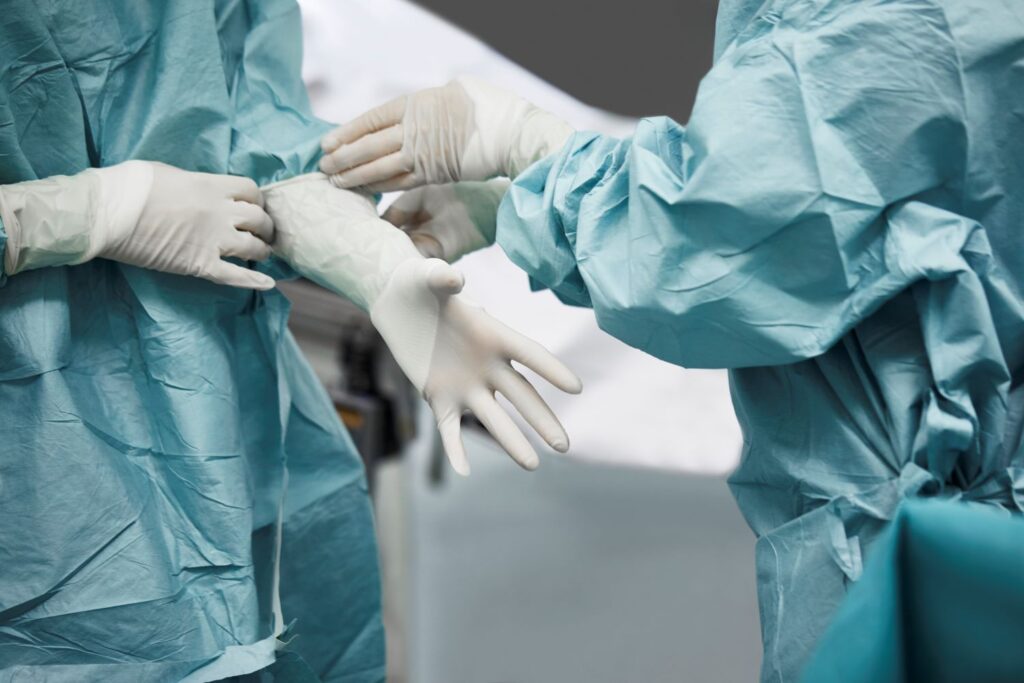- DHSS: Mpox Information
- Missouri State Public Health Laboratory: Rash Investigation Resources
- DHSS: Instructions for the Collection of Mpox Samples to the Missouri State Public Health Laboratory
- DHSS: Mpox Guidance for Health Care Providers

Outbreaks and Emerging Infectious Diseases
Outbreaks and emerging infectious diseases pose a serious threat to our health care system.
Known infectious diseases can quickly rise to an outbreak level, and new threats can arise suddenly. Lapses in preparedness can leave communities unnecessarily vulnerable. Below are resources to help hospitals, health care coalitions and other organizations prepare for and respond to the diseases that are currently a threat to our world.
The CDC maintains a list of current outbreaks in which they are monitoring and reporting in the U.S. and internationally.
Mpox
There currently is a global outbreak of mpox affecting multiple countries in which the disease is not endemic, including the U.S. Mpox is a rare disease that is caused by infection with the mpox virus, which belongs to the Orthopoxvirus genus in the family Poxviridae. The Orthopoxvirus genus also includes variola virus (which causes smallpox), vaccinia virus (used in the smallpox vaccine) and cowpox virus.
Mpox is considered an immediately reportable disease in the State of Missouri. To report a suspected case, hospitals and clinics should contact their local public health agency or the Missouri Department of Health and Senior Services’ Bureau of Communicable Disease Control and Prevention at 573-751-6113 or 800-392-0272 (24/7).
The Missouri State Public Health Laboratory will perform an orthopox test, and if it is confirmed positive, specimens will be submitted to the CDC for testing. Instructions for submitting specimens for testing are available.
Situational Awareness
Mpox Resources
Clinical Guidance
- NETEC: Mpox Outbreak Updates
- CDC: Information For Health Care Professionals
- CDC: Clinician FAQs
- CDC: Case Definitions†
- CDC: Clinical Recognition
- CDC HAN: Mpox Virus Infection in the U.S. and Other Non-endemic Countries
- WHO: Interim Rapid Response Guidance: Clinical Management and Infection Prevention and Control of Mpox
Testing
Treatment
- CDC: Treatment
- CDC: Guidance for Tecovirimat Use Under Expanded Access Investigational New Drug Protocol
- CDC: Mpox and Smallpox Vaccine Guidance
Reporting
- CDC: Infection Control Overview
- CDC: Infection Prevention and Control in Health Care Settings
- CDC: Mpox Response: Transmission
- CDC: Decontamination Guide for Smallpox (applicable to mpox)
- CDC: Duration of Isolation Procedures
- CDC: Monitoring Persons Exposed
On-Demand Education
- CDC COCA: What Clinicians Need to Know about Mpox in the U.S. and Other Countries (5/24/22)
Fact Sheets
- CDC: Mpox: Get the Facts
- Nebraska Medicine: Mpox Fact Sheet
Morbidity and Mortality Weekly Reports
Ebola
Based on current guidance for evaluating persons with Ebola, if an individual is found to be at risk, then the specified infection control measures must immediately be instituted, and hospital leadership, along with state and local public health officials, must immediately be notified. It is very important that these steps be consistently followed in all emergency departments. To report a suspected Ebola patient call the Missouri Department of Health and Senior Services at 573-751-6113 or 800-392-0272 (24 hours a day/seven days a week), and call your local public health agency. Please follow the steps below for patients who present with symptoms and have recently traveled from Uganda.
- Patients should be placed in an airborne isolation room, if available, and appropriate PPE should be worn during the evaluation process.
- Hospitals and clinics that identify possible EVD patients should first call either their Local Public Health Department or the DHSS Emergency Resources Center at 573-751-5152 or 800-392-0272.
- Prior consultation with CDC is required before shipping a specimen to CDC for Sudan virus testing. All specimens collected from patients with suspected EVD must be shipped Category A as a nonselect agent.
- There is no FDA-licensed vaccine or treatment for Sudan virus, but MBP134, an experimental antibody cocktail therapy, has demonstrated efficacy in nonhuman primates. Supportive treatment can improve chances of survival when provided early.
Ebola Resources
- CDC: Ebola Virus Disease Overview
- CDC: General Resources for Ebola Virus Disease
- CDC: Health Alert: Update on Ebola Virus Disease (Sudan ebolavirus) Outbreak in Central Uganda (11/7/22)
- CDC: COCA Call: Update on 2022 Ebola Outbreak in Uganda (10/12/22)
- Missouri Ebola Virus Disease Plan, located in EMResource library
- UNMC: Global Center for Health Security
- CDC: Personal Protective Equipment
- CDC: Interim Guidance for U.S. Hospital Preparedness for PUIs or with Confirmed EVD
- CDC: Infection Prevention and Control Recommendations for Hospitalized PUIs for EVD in U.S. Hospitals
- CDC: Interim Guidance for Environmental Infection Control in Hospitals for Ebola Virus
- CDC: Procedures for Safe Handling and Management of Ebola-Associated Waste
- CDC: Guidance on PPE To Be Used By Healthcare Workers During Management of Patients with Confirmed Ebola or PUIs who are Clinically Unstable
- CDC: Estimated PPE Needed for Healthcare Facilities
Donning and Doffing of PPE
- CDC: Guidance Videos for Donning and Doffing PPE During Management of Patients with Ebola Virus Disease in U.S. Hospitals
- UNMC: Handouts, Videos and Other Materials for Donning and Doffing Education and Training
- North Carolina Division of Public Health: Donning and Doffing of PPE for Ebola Isolation Units
- CDC: Ebola Preparedness: Emergency Department Training Modules
- NETEC: Ebola in the Age of COVID Webinar
- NETEC: PPE 201
- CDC: PPE Training
- DHSS: Missouri’s Response Plan for Suspected and Confirmed Patients Webinar
- MHA: Ebola Tabletop Exercise (.ppt)
- University of Nebraska Medical Center: ISOPOD Training Video
- Annals of Emergency Medicine: Transport and Management of Patients with Confirmed or Suspected Ebola Virus Disease
- UNMC: Free Ebola Online Course
Highly Pathogenic Avian Influenza
Highly Pathogenic Avian Influenza (HPAI, Avian Flu, H5N1) remains a concern that is closely being monitored at the state, regional and national levels. With continued mutation, this virus could become transmissible from human to human, causing a large outbreak. A vaccine has already been developed but is not currently available.
Presently, this virus is rapidly spreading throughout both domestic and wild animal populations, including a variety of mammals. The greatest impacts can be seen in dairy cattle and poultry flocks. This disease is fatal to poultry flocks and requires the culling of infected and exposed animals to prevent the spread. While multiple outbreaks among dairy cows have been noted, and at least one worker infected, confidence remains in the pasteurization process of dairy products. The gastric environment may protect against this virus. The FDA and CDC warn against the use of raw milk.
This virus is difficult to detect in humans as it mimics other viral illnesses, and to date, the symptoms have not been severe. The course of action recommended at this time is the familiar Identify – Isolate – Inform strategy.
- Identify – Does the patient show signs of viral illness and spend significant time around commercial animal endeavors or has backyard poultry flocks that are also not well?
- Isolate – Use appropriate PPE, as with all potential patients with viral illness, and obtain appropriate lab tests.
- Inform – If the patient comes back negative for common RVI or viral illness panels, notify local public health or DHSS 24/7 about the possible need for additional testing.
Additional HPAI information, including ongoing situational awareness and clinical information on testing and treatment, is available from the CDC.
Contact An Expert


Keri Barclay
Media Library











